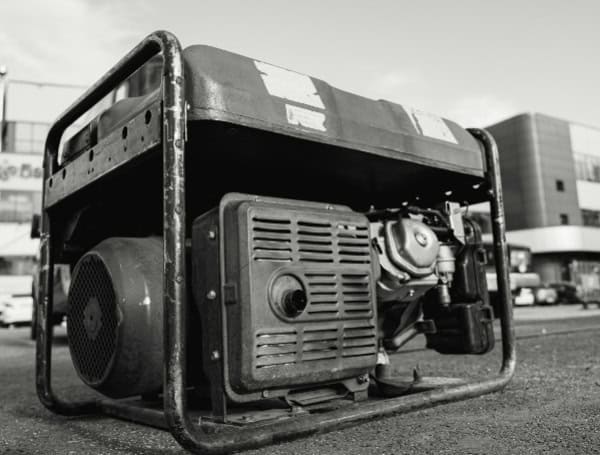As the 2025 Atlantic hurricane season approaches, Florida officials and safety experts are urging residents who rely on portable generators during power outages to prioritize safety to prevent tragic accidents.
The primary and most lethal threat associated with generator use is carbon monoxide (CO) poisoning. This odorless, colorless gas produced by gasoline-powered engines can incapacitate and kill within minutes.
State and national safety guidelines are unequivocal:
- Outdoor Operation Only: Never run a generator inside a home, garage, basement, crawlspace, shed, or any partially enclosed area, even with doors and windows open. Ventilation in such spaces is insufficient to prevent dangerous CO buildup.
- Safe Distance: Generators must be placed at least 20 feet away from your home and any neighboring buildings. Ensure the exhaust is directed away from all windows, doors, and vents.
- CO Detectors are Lifesavers: Install battery-operated or battery-backup carbon monoxide detectors on every level of your home and outside sleeping areas. Test them regularly. Models with CO shut-off safety features, which automatically turn off the generator when high CO levels are detected, are highly recommended.
>>>READ: NOAA’s Warning To Florida: Above-Average Hurricane Season Looms For 2025<<<
Beyond the risk of CO poisoning, electrocution, and fire pose significant dangers.
“Water and electricity are a deadly combination, a risk amplified during and after a hurricane,” warns the Electrical Safety Foundation International (ESFI).
To mitigate these risks:
- Keep it Dry: Operate generators on a dry surface. Protect them from rain and flooding, ideally using a specifically designed, NFPA-rated non-combustible generator tent or waiting until the rain passes. Never touch a generator with wet hands.
- Proper Cords: Use only heavy-duty, outdoor-rated extension cords that are in good condition and appropriately rated for the load. Plug appliances directly into the generator or the extension cord; never plug the generator into a wall outlet.
- Transfer Switches are Key: To power your home’s wiring, a licensed electrician must install a proper transfer switch. Connecting a generator directly to your home’s electrical system, known as “backfeeding,” can electrocute utility workers repairing power lines and cause damage.
- Refuel Safely: Always turn the generator off and allow it to cool completely before refueling. Gasoline spilled on hot engine parts can ignite. Store fuel in approved safety containers, outside of living areas, and away from any heat sources.
- Avoid Overload: Do not overload the generator with more appliances than it can handle, as this can damage the generator and connected devices, and create a fire hazard.
Florida’s specific hurricane risks, such as heavy rainfall and potential flooding, make these precautions even more critical. The Florida Division of Emergency Management (FDEM) emphasizes preparedness before a storm hits:
- Inspect and Maintain: Ensure your generator is in good working order well before a storm is forecast. Read the owner’s manual thoroughly.
- Fuel Supply: Have an adequate supply of fuel stored safely.
- Plan Your Needs: Determine what essential appliances you will need to power.
Florida residents are encouraged to review generator safety guidelines provided by their local emergency management offices, the Florida Department of Health, and organizations like the National Weather Service and ESFI.
As the hurricane season begins on June 1st, being prepared and informed is the best defense against both the storm and the potential hazards of alternative power sources.
Please make a small donation to the Tampa Free Press to help sustain independent journalism. Your contribution enables us to continue delivering high-quality, local, and national news coverage.
Connect with us: Follow the Tampa Free Press on Facebook and Twitter for breaking news and updates.
Sign up: Subscribe to our free newsletter for a curated selection of top stories delivered straight to your inbox.

